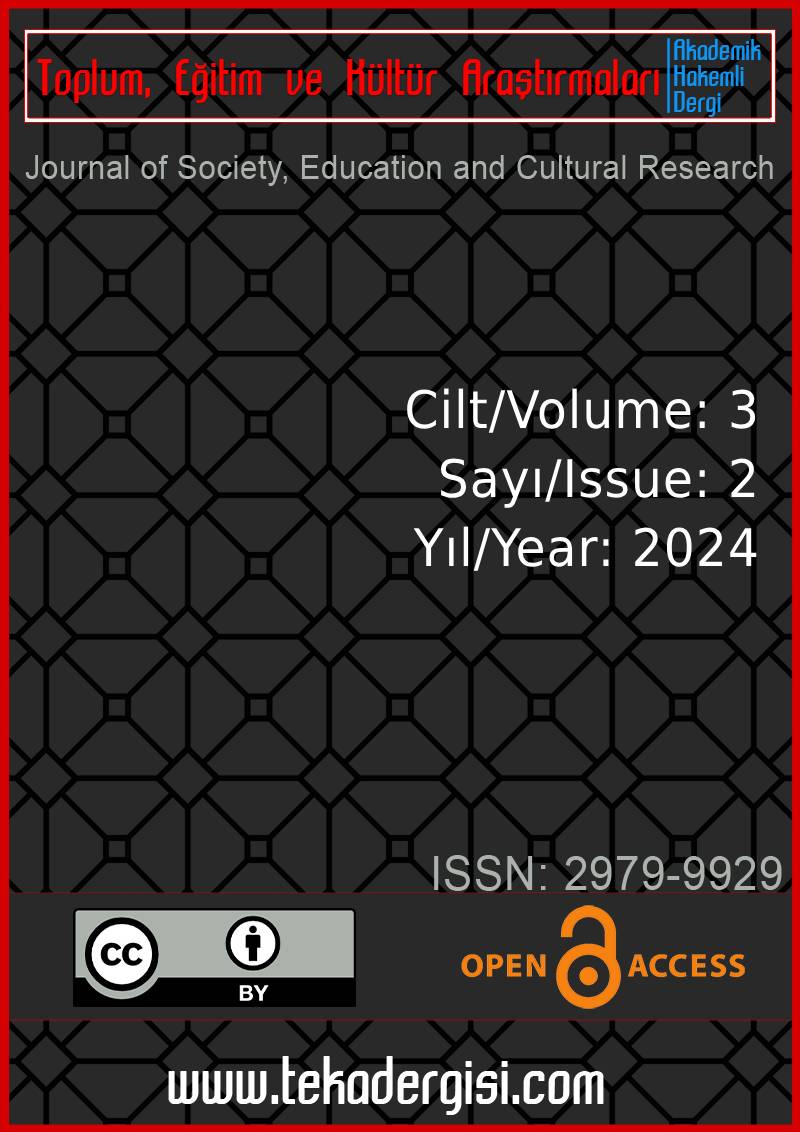Tools of Science Diplomacy in the Triangle of Researcher, Fund Provider, and Bureaucracy: Observations from the United States and Türkiye
DOI:
https://doi.org/10.5281/zenodo.13765863Keywords:
Foreign policy , funds , grants , education , science , diplomacyAbstract
Countries like France, Italy, Switzerland, South Korea, Japan, and the United States have accelerated their efforts in science diplomacy. The increasing importance of international collaborations in science, which enhance the ability to respond swiftly to global challenges, and the development and improvement of diplomatic relations through scientific cooperation have garnered attention in this field. The global experiences during the COVID-19 pandemic highlighted deficiencies in the system and regarding necessary actions, serving as examples for some studies. Current areas of interest in science diplomacy include quantum studies, artificial intelligence, climate change, pandemics, water resources, and sustainability. Meetings where representatives from academia, research centers, public institutions, ambassadors, and science diplomats are becoming more frequent, allowing for mutual understanding and agreement. Considering Türkiye’s geographical location, neighboring relations, and history, it is evident that it has a well-established foreign policy memory for managing various crises. Besides diplomatic experience, the pool of experienced researchers who have studied in strategic fields in different countries over the past century (under the 1416 law grants), TÜBİTAK-funded researchers, and Fulbright scholars have contributed significantly to the international cooperation. The key players in Türkiye’s potential in science diplomacy also include research infrastructures certified under law 6550 (such as DEHUKAM, ODTÜ-MEMS, UNAM, GÜNAM, IBG, SUNUM, and TARLA), universities, and funding institutions like TÜBİTAK, TÜSEB, YTB, and the National Agency. Türkiye has the experienced scientists, strong diplomacy, strong institutions which makes it ready for being a strong actor of science diplomacy in the near future.
References
Akademik Miras, 2017. Available from: http://www.akademikmiras.org/ Access date: July 15, 2024.
Young M., et al., 2020. The'Matters' of Science Diplomacy: Transversal Analysis of the S4D4C Case Studies. Available from: https://ris.utwente.nl/ws/portalfiles/portal/236598028/10.5281_zenodo.4041042.pdf Acess date: June 10, 2024
Johns Hopkins Science Diplomacy Summit, 2024. Available from: https://euraxess.ec.europa.eu/worldwide/north-america/events/johns-hopkins-science-diplomacy-summit-2024 Access date: June 18, 2024.
The Royal Society, 2010. New frontiers in science diplomacy. Available from: https://www.aaas.org/sites/default/files/New_Frontiers.pdf Access date: June 16, 2024.
Ruffini, PB. Conceptualizing science diplomacy in the practitioner-driven literature: a critical review. Humanit Soc Sci Commun 7, 124 (2020). https://doi.org/10.1057/s41599-020-00609-5
Kontar YY., et al. Disaster-related Science Diplomacy: Advancing Global Resilience through International Scientific Collaborations, 2018. Science & Diplomacy. Available from: https://www.sciencediplomacy.org/article/2018/disaster-related-science-diplomacy-advancing-global-resilience-through-international Acess date: July 10, 2024.
Buyuktanir Karacan, D. Science diplomacy as a foreign policy tool for Turkey and the ramifications of collaboration with the EU. Humanit Soc Sci Commun 8, 49 (2021). https://doi.org/10.1057/s41599-021-00722-z
COST. Collaborative Excellence in the European Research Area. COST Annual Report 2023. https://www.cost.eu/uploads/2024/04/COST_Annual_Report_2023.pdf
Igor Linkov, Benjamin Trump, Elisa Tatham, Sankar Basu, Mihail C. Roco, “Diplomacy for
Science Two Generations Later,” Science & Diplomacy, Vol. 3, No. 1 (March 2014*). https://www.sciencediplomacy.org/perspective/2014/diplomacy-for-science-two-generations-later
Jon W. South Korean data-sharing case is a wake-up call. Nature 631, 9 (2024) doi: https://doi.org/10.1038/d41586-024-02182-2
Gluckman PD., Turekian V., Grimes RW., Kishi T., “Science Diplomacy: A Pragmatic
Perspective from the Inside,” Science & Diplomacy, Vol. 6, No. 4 (December 2017). http://www.sciencediplomacy.org/article/2018/pragmatic-perspective
Loftness R. “Why Science Attachés?” Scientific Monthly 80 (1955): 124–127.
Science and Innovation Network. Available from: https://www.gov.uk/world/organisations/uk-science-and-innovation-network Access date: July 17,2024.
SIN; UK Science and Innovation Network summary: Turkey. Available from: https://www.gov.uk/government/publications/uk-science-and-innovation-network-country-snapshot-turkey/uk-science-and-innovation-network-summary-turkey Acess date: July 12, 2024.
FMSTAN, Foreign Ministries Science & Technology Advice Network, 2024. Available from: https://ingsa.org/divisions/fmstan/ Acces date: July 16, 2024.
INGSA, International Network for Government Science Advice, 2024. Available from: http://www.ingsa.org/
Acces date: July 16, 2024.
Three Thıngs To Know About Science Dıplomacy. https://washingtondc.jhu.edu/news/three-things-to-know-about-science-diplomacy/
Özkaragöz ED. Science diplomacy in the global age: examples from Turkey and the world. Available from : https://open.metu.edu.tr/handle/11511/24615 Access date: July 12, 2024.
Smit CL. CERN and SESAME – Science Diplomacy Building Bridges. Available from: https://www.sciencediplomacy.org/perspective/2022/cern-and-sesame-science-diplomacy-building-bridges Acess date: July 10, 2024.
Southern African Regional Science Initiative Project- SAFARI 2000. Available from: https://daac.ornl.gov/cgi-bin/dataset_lister.pl?p=18 Acess data: July 12, 2024.
NASEM-Funded Projects. The Partnerships for Enhanced Engagement in Research (PEER), National Academies, Development, Security and Cooperation. Available from: https://sites.nationalacademies.org/PGA/PEER/PGA_167039 Acess date: July 14,2024.
Kıran, Y. S., Açıkalın, Ş. N. (2021). New tools of soft power: Turkey’s education and science diplomacy. Hacettepe University Journal of Education, 36(4), 977-985. doi: 10.16986/HUJE.2021072717
INGSA. International Network for Government Science Advice, http://www.ingsa.org/.INGSA
Koçak Tufan, Z. Akademik Mirasın Seyir Defteri, Göç ve Eğitime Dair. 2020. Available from: https://www.yok.gov.tr/Documents/Yayinlar/Yayinlarimiz/2020/akademik-mirasin-seyir-defteri-goc-ve-egitime-dair.pdf Acess date: July 15, 2024.
Ravinet, P., Cos, R., Young, M. (2020). The science and diplomacy of global challenges: Food
security in EU-Africa relations. In: Young, M., Flink T., Dall, E. (eds.) (2020). Science
Diplomacy in the Making: Case-based insights from the S4D4C project.
Tomalová, E., Černovská, E., Aukes, E., Montana, J., Dall, E. (2020). Water Diplomacy and its
Future in the National, Regional, European and Global Environments. Young, M., Flink T., Dall,
E. (eds.) (2020). Science Diplomacy in the Making: Case-based insights from the S4D4C
project.
Downloads
Published
How to Cite
Issue
Section
License
Copyright (c) 2024 Toplum, Eğitim ve Kültür Araştırmaları Dergisi

This work is licensed under a Creative Commons Attribution 4.0 International License.


